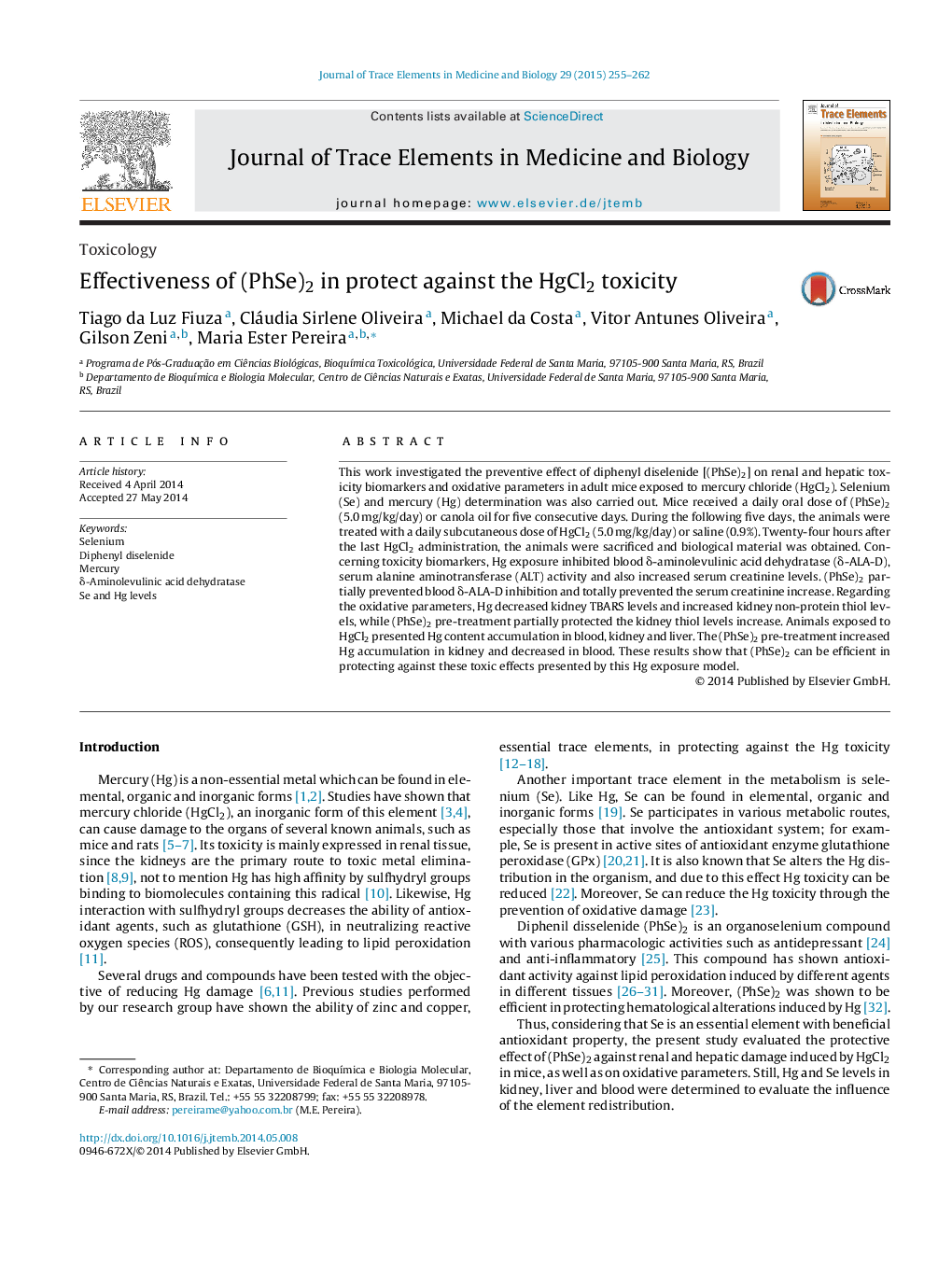| Article ID | Journal | Published Year | Pages | File Type |
|---|---|---|---|---|
| 1227370 | Journal of Trace Elements in Medicine and Biology | 2015 | 8 Pages |
This work investigated the preventive effect of diphenyl diselenide [(PhSe)2] on renal and hepatic toxicity biomarkers and oxidative parameters in adult mice exposed to mercury chloride (HgCl2). Selenium (Se) and mercury (Hg) determination was also carried out. Mice received a daily oral dose of (PhSe)2 (5.0 mg/kg/day) or canola oil for five consecutive days. During the following five days, the animals were treated with a daily subcutaneous dose of HgCl2 (5.0 mg/kg/day) or saline (0.9%). Twenty-four hours after the last HgCl2 administration, the animals were sacrificed and biological material was obtained. Concerning toxicity biomarkers, Hg exposure inhibited blood δ-aminolevulinic acid dehydratase (δ-ALA-D), serum alanine aminotransferase (ALT) activity and also increased serum creatinine levels. (PhSe)2 partially prevented blood δ-ALA-D inhibition and totally prevented the serum creatinine increase. Regarding the oxidative parameters, Hg decreased kidney TBARS levels and increased kidney non-protein thiol levels, while (PhSe)2 pre-treatment partially protected the kidney thiol levels increase. Animals exposed to HgCl2 presented Hg content accumulation in blood, kidney and liver. The (PhSe)2 pre-treatment increased Hg accumulation in kidney and decreased in blood. These results show that (PhSe)2 can be efficient in protecting against these toxic effects presented by this Hg exposure model.
